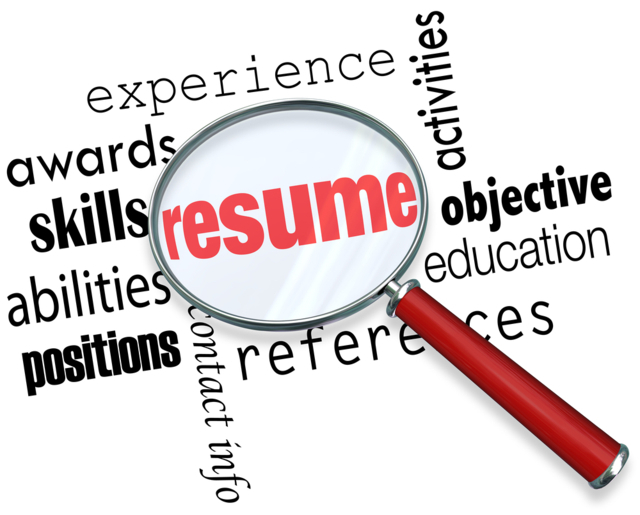In today’s fast-paced world, frequent change is a given. While many think that frequent job changes could be detrimental to your career and that you should stay with one company for as long as possible, this is no longer the change. In fact, most job seekers change roles, on average, every 4.2 years. However, you’ll still be asked about the frequent change, so you’ll want to be prepared. In this blog post, we’ll discuss some tips on how you can explain frequent changes on your resume so that it doesn’t look like a red flag for potential employers.
Top 5 Strategies To Explaining Changes On Your Resume
Frequent changes on your resume will often be accompanied by questions. However, you’ll want to make sure you’re thinking about how you’re going to answer it. Plus, things you should not do when discussing it with potential employers. So here are a few strategies to explain changes on your resume.
Be Honest About Why You Left
Always be honest about why you left your previous job. Never make up a reason to cover the real reason. For example, if you were fired for poor performance or because of unethical behavior, just state that plainly and clearly at the interview. While you might want to word it differently, you should never make up an excuse. Honesty is always best as it will help put any concerns employers may have to rest right away.
Highlight The Skills You’ve Achieved
If you’ve taken courses, received professional development opportunities, or have achieved certifications during your frequent job changes, be sure to highlight your strengths. You can do this by adding them at the bottom of your resume with a sentence summarizing what you learned and how it will benefit an employer. In addition, if you’ve learned different skills at each job, make that known! These transferrable skills can be beneficial to your potential employer.
Don’t Talk Negatively About Jobs
Even if you had a falling out with an employer or hated your previous job, talking negatively about the company or manager is never a good idea. While it may be tempting, this will more than likely backfire on you. Potential employers don’t want to hire someone who doesn’t have a positive outlook and can be negative about former jobs. There’s no need to place blame or trash talk, so don’t do it!
Only Include Relevant Jobs On Your Resume
While frequent job changes are becoming the norm, only include relevant jobs on your resume. This means that if you’ve had a few internships before working at more permanent positions, then they should stay off of your resume as they’re not very important to employers. Plus, sticking to relevant jobs helps with focus and can help highlight what’s important on your resume.
Don’t Avoid The Issue
Frequent job changes can be a red flag to employers, but you shouldn’t avoid the issue. If an employer brings it up during your interview, you should address it head-on and not try to brush it off or ignore their question. While it might be something you don’t want to talk about, facing it head-on can help you stand out during an interview.
What Are Some Good Reasons For Leaving A Job?
While frequent job changes are becoming the norm, you’ll still want to have a good reason for leaving your previous jobs. Here are some reasons you might use during your explanation to a potential employer.
Covid-19 Layoff
Due to COVID, there have been more than 15.9 million individuals who have lost their job. If you were laid off, there’s no shame in admitting it. However, make sure to highlight your skills and how they can be beneficial to an employer. That way, the frequent change hasn’t derailed your chances of getting hired at all!
Better Job Offer
If you’ve had frequent job changes due to better offers, then this is an easy way to explain it. First, however, show how that new job offer presented a new challenge or helped you grow professionally.
Family Health Reasons
This is another excellent reason to give as frequent job changes can be due to family health reasons. Don’t be shy about sharing if you took time off to take care of a parent or grandparent. Keep it short and brief while explaining the situation.
Personal Health Problems
Frequent job changes can also be due to personal health problems. If you were dealing with frequent doctor’s appointments or mental health issues, then share those reasons as well. Again, keep it short and sweet, so the employer doesn’t feel like they’re being bombarded by a long list of frequent job changes!
Starting Your Own Business
Starting a business is an excellent reason for frequent job changes. The frequent change can be due to your own entrepreneurial pursuits, and that’s okay! Just make sure to demonstrate how this helped you grow as a professional.
Company Restructuring
If you’ve had frequent job changes due to company restructuring, then this is another great explanation. Just make sure that the restructuring was something beyond your control and demonstrate how it helped you grow as a professional.
Why Is Job Switching Frowned Upon?
While frequent job changes can be a great way to grow and expand your career, some employers frown upon regular switches. Employers may wonder why frequent job changes occur and believe you’re unable to stick with one opportunity. Employers want to invest in an employee who wants to stick around instead of switching to another job. This is especially true since the average onboarding costs of an employee is $4,100.
11 Ways to Improve Your Resume For Potential Headhunters
While there are ways to speak about frequent changes on your resume in person, you’ll want to consider how your resume looks. Your resume is the first step to securing a job position, so it’s essential to catch headhunters’ attention. Before you e-mail your recruiter, follow these tips to improve your resume.
Leave Off Your Picture
It’s never a good idea to include your picture on your resume. Not only does it make you stand out, but headhunters may focus more on your picture than the skills and experience sections of your resume instead. So instead, make sure to include your contact details, such as an e-mail address and phone number.
Cut the Fluff
Don’t be afraid of cutting down fluff in your resume. Employers want to see relevant skills that match their needs for a job position. While you may have plenty of experience under your belt, don’t focus on irrelevant skills. If you’re trying to fill the page with an abundance of words, consider cutting down on the amount of content you present to an employer. You want your resume to stand out, not read like a book!
Switch The Font
If you’re having a hard time being noticed by potential employers, consider switching the font. A bolder and larger font can help an employer focus on what matters most: your skills! This makes your resume easier to read and enables you to stand out from the stack they already have on their desk.
Ensure There Are No Grammatical Errors
You may have spent so much time perfecting your resume, but don’t forget about grammar. Make sure to check for any grammatical errors by reading it out loud or showing a friend. If you’re nervous that you’ll miss a mistake while proofreading, consider hiring someone else to review the content on your resume before sending it off!
Include Hyperlinks To Your LinkedIn
If you’re trying to land a job, one of the best things you can do is include your LinkedIn profile. It’s not only professional, but it also showcases relevant experience and skills that match an employer’s needs! If they opt to click on your link, they’ll be able to see additional information about who you are as a professional. This allows them to learn more about your experience, skillset, and personality!
Delete Irrelevant Job Information
If you’ve had frequent job changes, chances are that some of your positions were irrelevant. Only put the important information. Leave your jobs from 10 to 15 years ago off your resume.
List Out Skills Related To The Position You Want
When it comes to frequent job changes, you’ll want to list out skills that are relevant. If an employer is looking for a specific set of skills or experience, make sure your resume reflects those. You might even consider highlighting the transferable skill sets from previous jobs as they can be applicable in future opportunities! A great way to determine what to showcase would be to align your resume with the job posting.
Don’t Go Crazy On Design
If you’re going to design your resume, don’t go too crazy. A clean and straightforward layout with a font that’s easy on the eyes will help employers focus more on relevant content as opposed to some of the flashy elements. Also, keep in mind what makes sense for the job you’re applying to. For example, if you’re applying for a creative gig, a designed resume may make sense. However, for a more professional job, it might not be as appropriate.
Use Powerful Wording
If an employer is skimming through your resume, make sure to use powerful wording. Use action verbs and present information in a way that’s easy for the eyes. Try to avoid repeating words as this can be redundant and even boring. You want your resume to stand out, not read like a novel!
Include A Cover Letter
A cover letter is a short one-page letter that provides the opportunity to explain frequent job changes. Your cover letter can highlight how it led to professional growth and identify which skills were developed while switching jobs so frequently. You can even use this space to show how committed you will be to the new position you’re applying for.
Don’t Waste Space
Remember: your resume is a space for you to market yourself effectively. It’s not meant to be used as an autobiography of everything you’ve ever done in the past. There may even be things that happened at work that aren’t relevant such as frequent breaks, so leave those out too! Don’t waste the space by putting down too little information or including the wrong info.
Conclusion
In conclusion, frequent job changes may come with a few obstacles. However, it can be possible to overcome them and excel in your career! All you have to do is make sure that all of the content on your resume reflects what employers are looking for while also using effective wording.
It would help to show how frequent change has led to professional growth by highlighting relevant skill sets from previous jobs. Following these tips can make it easier to explain and market yourself, regardless of how many career changes you may have had!
Contact Sales Recruiters Chicago To Find The Job Of Your Dreams
If you’re ready to find your next sales position, then contact our team of experts at Sales Recruiters Chicago today! We have a ton of quality sales jobs that are available right now in the city. Check out some of our open positions, or submit your resume to get started.




Comments are closed.